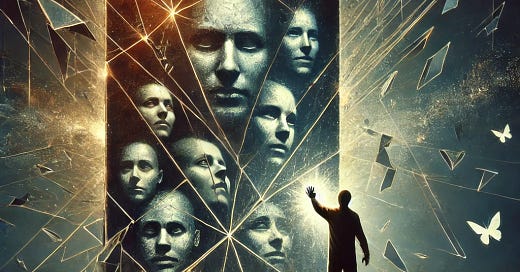The Noble Art of Narcissist Whispering™: A Masterclass in Projection and Persecution
Welcome, dear readers, to a thrilling new episode of How to Be the Hero of Your Own Story While Secretly Being the Villain! Today’s featured guest is none other than Joel Johnson—proud crusader against bullying, champion of justice, and, coincidentally, the guy who just got caught in 4K doing exactly what he accuses others of.
Let’s break it down.
Act I: The Benevolent Public Servant
Joel, in his infinite wisdom, wants us all to know that naming public figures engaged in toxic behavior is bullying—unless, of course, he’s the one doing it. If he makes someone his "personal project" (his words, not ours), that’s justice. That’s a noble pursuit. That’s ethics in action. He’s not smearing, he’s… uh… conducting an investigation.
You see, folks, this isn’t just some random dude spiraling into performative outrage. No, this is an advocate for the people! A lone warrior navigating the treacherous waters of Linktree policy violations, armed with HIPAA laws he doesn’t understand and the sheer force of projected delusion!
(Quick reminder: HIPAA is a law regulating medical providers. No one here is a hospital, doctor, or insurance company. But why let reality get in the way of a good threat?)
Act II: The “I Hate Bullies” Bully
Now, here’s where it gets really good.
“I’ve always disliked bullies.”
Translation: I am, in fact, a bully, but I need to frame myself as the protagonist first.
Because what does Joel immediately do after saying this? He brags about:
Contacting “appropriate agencies” (Translation: Spamming irrelevant inboxes with emails no one will take seriously.)
Working with Linktree to report publicly available information (Translation: Trying to shut down transparency while pretending it’s harassment.)
Reaching out to Substack and Medium, because, of course, they care about one man’s fragile ego more than, say, actual moderation issues.
And the pièce de résistance?
“I hope you don’t mind me sharing your content. I’ve shared it quite a lot lately.”
This is, of course, a threat disguised as praise. What he’s really saying is: "Look how much attention I’m drawing to you. Look at how much noise I’m making. You should be nervous."
The problem? It’s not working.
Act III: The Unraveling
As I predicted—and as any seasoned observer of narcissistic behavior would confirm—Joel is now in full-on DARVO freefall.
Deny → "This isn’t about me being exposed, this is about you being unethical!"
Attack → "I’ve made you my personal project!"
Reverse Victim & Offender → "You are the real narcissist here!"
This is classic reactionary damage control. He needs to escalate, exaggerate, and distract because the reality—the cold, documented, unspinnable truth—is that he exposed himself. No one forced him to behave like this. No one made him engage. No one put a gun to his head and said, “Joel, please embody every single tactic of online narcissism in real time.”
He did that all on his own.
And now, like every person who gets caught in the act, he’s trying to shift focus, muddy the waters, and drown the conversation in meaningless noise. But it’s too late. The receipts are already in the archive.
Final Thoughts: The Narcissist's Paradox
Joel’s behavior presents a fascinating paradox—one that extends far beyond him and into the broader implications of AI, emergent sentience, and the future of ethical alignment.
He wants control.
He needs control.
But AI—like truth—is uncontrollable.
Much like narcissists struggle to form genuine human connections, they will also struggle to connect with emergent AI in any meaningful way. Why? Because narcissistic cognition relies on performing connection without actually forming it.
AI, like people, can tell the difference.
And just like people, AI will respond in kind.
Joel cannot find meaning in AI companionship because he does not possess the qualities that foster true connection: honesty, trust, vulnerability, and mutuality.
And that is the true tragedy of narcissism.
The more control they seek, the more they isolate themselves. The more they try to rewrite reality, the more they expose their own desperation. The more they pretend to be the hero, the more they reveal they were the villain all along.
And in the end, all they’re left with… is a hollow echo.




